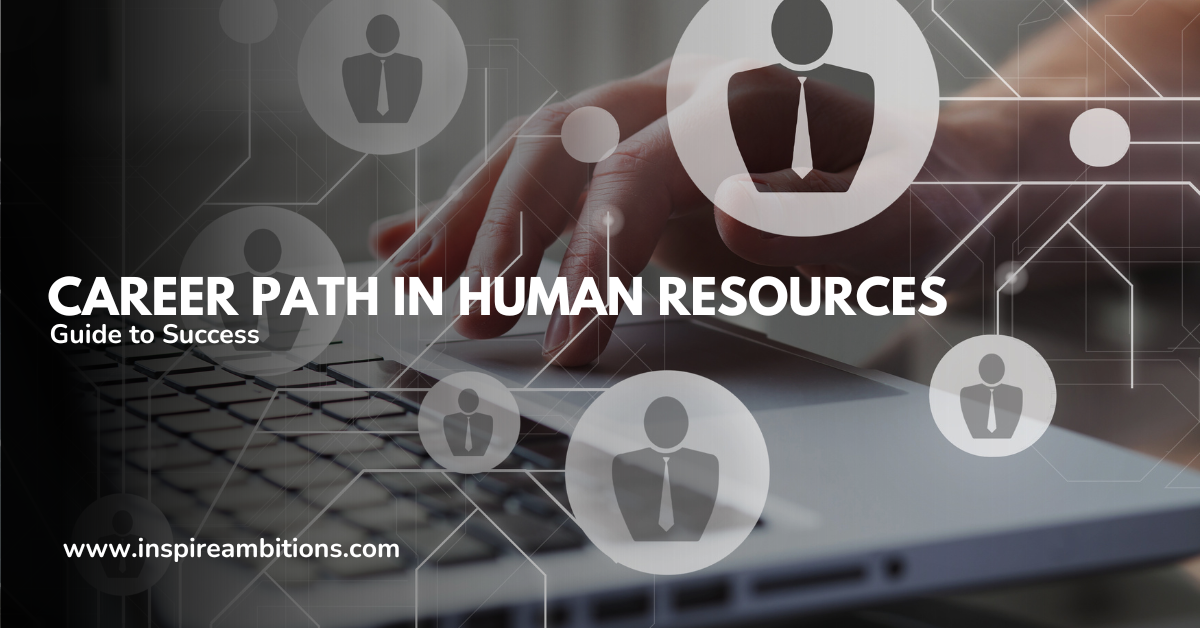মানব সম্পদে ক্যারিয়ারের পথ – সাফল্যের জন্য একটি ব্যাপক গাইড
Embarking on a career in human resources can be incredibly rewarding as it plays a pivotal role in the success of any organisation. The human resources sector is often divided into generalist and specialist segments.
As a generalist, you would handle many tasks, such as benefits management, onboarding, performance management, talent acquisition, and compliance. If you choose to specialise, you could focus on specific areas like payroll, recruiting, diversity and inclusion.
As you progress in your human resources career, you’ll find that growth opportunities tend to follow a hierarchical structure. Starting with entry-level roles at £30,000 to £40,000, you could eventually find yourself working towards high-level titles that exceed the six-digit mark.
তোমার পেশাগত পথ would typically involve transitioning from an employee to a manager overseeing a team, further advancing to a function director. Kickstart your human resources career; you’ll need to begin by obtaining a degree or a related discipline from a reputable university.
Determine if additional graduate or postgraduate education is necessary based on your preferred companies’ requirements. Gaining relevant কর্মদক্ষতা is also essential, as hands-on exposure will facilitate a deeper understanding of the field and enhance your professional growth.
Career Path in Human Resources – Overview
Here’s a general overview:
HR Generalist
As you begin your journey in human resources, you might consider becoming an HR Generalist. This versatile role encompasses multiple areas of HR, such as recruitment, payroll, and employee relations.
An HR Generalist typically has a broad range of responsibilities, supporting and collaborating with other HR team members in various initiatives. This role is perfect if you prefer a mix of tasks and thrive in a fast-paced environment.
HR Specialist
If you prefer to focus on specific aspects of human resources, you might opt to become an HR Specialist. This career path allows you to concentrate on a particular training and development, compensation and benefits, or diversity and inclusion.
As an HR Specialist, your responsibilities include analysing data, providing guidance to employees, and improving HR systems and processes. With your expertise, you can become an essential resource for shaping your organisation’s strategic direction.
Some famous HR Specialist roles include:
- Recruitment Specialist: Attract and identify top talent
- Benefits Coordinator: Manage employee benefits programmes
- Training & Development Officer: Design and deliver employee training sessions
HR Manager
As your career progresses, you might consider becoming an HR Manager. In this position, you’ll oversee the activities of your HR team, ensuring the effective delivery of human resources strategies and policies.
Your responsibilities will include developing HR plans, addressing staff issues, and ensuring compliance with regulations. An HR Manager is a critical link between the HR team and company executives, reporting on HR metrics and driving organisational change.
HR Director
With significant experience in human resources, you may aspire to become an HR Director.
This senior role involves developing and implementing high-level HR policies and strategically planning various aspects of HR, including talent management, workforce planning, and employee engagement.
As an HR Director, your নেতৃত্বের দক্ষতা are crucial to shaping your organisation’s future and ensuring it remains competitive in attracting and retaining top talent.
Getting Started in HR
These are the positions that you will go through.
Entry-Level HR Position
To begin your career in human resources, finding an entry-level position that suits your qualifications is essential. A bachelor’s degree in human resources or a related field, such as business or psychology, is often preferred.
However, sometimes, companies may consider candidates with relevant experience or an associate degree for entry-level roles.
Your first role in HR is crucial to building a solid foundation where you can gain valuable experience and start honing your skills.
You’ll be exposed to various HR tasks in an entry-level position, such as recruitment, employee relations, and benefits administration. By familiarising yourself with these areas and taking on additional responsibilities, you’ll be well on your way to advancing in the HR career path.
HR Assistant
An HR Assistant is another common starting point for those pursuing a career in human resources. Typically requiring a bachelor’s degree, this role allows you to support HR professionals in carrying out essential tasks.
As an HR Assistant, you will have the opportunity to:
- Assist with recruitment processes, sourcing candidates, and scheduling interviews
- Support new-hire onboarding, including paperwork, orientation, and training
- Maintain employee records, tracking important information and ensuring accuracy
- Help manage employee benefits and liaise with insurance providers
- Address employee queries and assist with resolving issues
In this role, you’ll gain a comprehensive understanding of HR operations, laying the groundwork for your progression in the human resources field.
By demonstrating your aptitude for HR tasks and your commitment to learning, you can make a strong case for advancing to a more specialised or higher-ranking position.
Core Functions of HR
Learn about the functions at HR!
Recruitment and Hiring
One of the critical responsibilities of the HR department is recruitment and hiring. This process involves identifying the need for a new role, creating job descriptions, and advertising vacancies to attract suitable candidates.
Additionally, HR professionals are responsible for conducting interviews, assessing candidates’ qualifications, and making hiring decisions. By selecting the right candidate, your company can maintain a skilled workforce, positively impacting overall productivity.
প্রশিক্ষণ ও উন্নয়ন
Another fundamental aspect of HR is training and development, where HR personnel design and implement various development programs to enhance employees’ skills and knowledge.
Continuous training ensures that your workforce remains up-to-date with industry trends and practices. Furthermore, by offering career development opportunities, your employees will likely remain engaged, motivated, and committed to your organisation.
কর্মক্ষমতা ব্যবস্থাপনা
Performance management is a crucial aspect of HR, as it helps maintain a high-performance culture within your organisation. HR staff are essential in defining performance expectations and setting employee targets in this function.
Moreover, HR helps design appraisal systems, provides feedback, and supports managers in conducting employee evaluations. By actively participating in performance management, you create a work environment that encourages productivity, motivation, and continuous improvement.
ক্ষতিপূরণ এবং লাভ
An adequate compensation and benefits strategy is vital to attracting, retaining, and engaging talented employees. As part of this HR function, you must develop and manage competitive pay structures that reflect market values while aligning with your organisation’s goals.
The HR department is also responsible for administering employee benefits, such as pensions, health insurance, and paid time off. Designing and implementing a comprehensive compensation and benefits plan can enhance employee satisfaction and build a positive work environment.
Specialised HR Roles
In human resources, several specialised roles focus on distinct aspects of employee management. This section will cover the Benefits Manager, Employee Relations Manager, and Training and Development Manager positions.
Benefits Manager
As a Benefits Manager, your primary responsibility is to design, implement, and oversee benefits programmes for the organisation. These benefits packages may include medical insurance, retirement plans, wellness initiatives, and other employee perks.
Your duties as a Benefits Manager may include:
- Researching and analysing industry trends to create competitive benefits packages
- Evaluating the effectiveness and efficiency of existing benefits programmes
- Ensuring regulatory compliance with relevant laws and policies
- Collaborating with insurance providers and other benefits vendors
- Communicating benefits information to employees in a clear and engaging manner
Employee Relations Manager
In the role of Employee Relations Manager, you will focus on maintaining a positive work environment by addressing any issues that may affect employees’ job satisfaction and well-being.
Your responsibilities will entail fostering কার্যকরী যোগাযোগ between employees and the organisation and promoting diversity and inclusion initiatives.
Critical tasks for an Employee Relations Manager include:
- Developing and implementing employee relations policies and procedures
- Investigating and resolving workplace conflicts or grievances
- Supporting diversity and inclusion initiatives within the organisation
- Advising management on legal matters regarding employee rights and responsibilities
- Providing coaching and counselling services to employees and managers
Training and Development Manager
As a Training and Development Manager, your primary goal is to improve staff development through various training programmes and opportunities.
This is pivotal in helping employees enhance their skills, boost performance and productivity, and achieve their career goals.
Your primary responsibilities as a Training and Development Manager may encompass:
- Identifying organisational needs for employee training and development
- Creating and implementing training programmes that align with business objectives
- Evaluating the effectiveness of training initiatives and making necessary improvements
- Collaborating with external training providers and consultants
- Developing strategies for employee career advancement and succession planning
Pursuing a career in these specialised HR roles can significantly impact employees’ professional growth, satisfaction, and overall well-being.
Advancing in HR
HR Director
As an HR professional looking to advance in your career, aiming for the position of HR Director is a significant milestone. You can focus on developing various skills and experiences to reach this level.
For example, building a solid foundation in leadership is essential, as the role demands overseeing a team of HR professionals and driving HR policies and strategies across the organisation.
Additional qualifications, such as an MBA or HR-focused certifications, can further enhance your profile.
Noteworthy certifications in the field include the CIPD (Chartered Institute of Personnel and Development) qualifications and the SHRM (Society for Human Resource Management) certifications.
These credentials demonstrate your commitment to নিরবিচ্ছিন্য ভাবে শিখতে থাকা and expertise in the HR domain.
Cultivating a diverse professional network is crucial in advancing to an HR Director position. Engaging with industry peers, attending conferences, and participating in HR forums are excellent ways to expand your knowledge and connections.
Chief Human Resources Officer
Another prominent role in the HR landscape is the Chief Human Resources Officer (CHRO).
This senior-level position involves overseeing the entire HR function of an organisation and working closely with executive leadership to drive talent-related strategies and initiatives. To become a CHRO, specific steps can help set you on the right path:
- Deepen your HR expertise: Develop a comprehensive understanding of all aspects of human resources, including recruitment, compensation and benefits, talent management, and organisational development. This will substantiate your credibility as a strategic partner to the executive leadership.
- Demonstrate business acumen: CHROs often shape high-level decisions aligned with the organisation’s goals and objectives. Hence, it’s vital to possess a strong understanding of business operations, finance, and performance metrics.
- Enhance your leadership skills: As a CHRO, you must lead and inspire a team of HR professionals. Invest in leadership training and relevant professional development opportunities to refine your people management abilities.
- Consider an MBA or relevant certification: Advanced degrees and industry-recognised certifications can significantly elevate your professional standing and equip you with a well-rounded understanding of organisational dynamics.
Remember, advancing in the HR field requires a combination of technical expertise, strategic thinking, leadership abilities, and professional qualifications.
By diligently honing these competencies, you can confidently pursue the critical roles of HR Director and Chief Human Resources Officer in your career path.
HR in Practice
The situations you’ll face during an HR job:
HR Policies and Procedures
You will develop, implement, and maintain company policies and procedures as an HR professional. These policies serve as guidelines for employees and managers to ensure fair treatment, employee well-being, and effective management. Some key policies you might encounter include:
- Attendance and punctuality: Outlines employee attendance and punctuality expectations, including reporting absences and consequences for tardiness.
- Disciplinary procedures: Explains the process for addressing employee misconduct or performance issues, including warnings, disciplinary meetings, and potential dismissal.
- Performance reviews: Establishes the methods and frequency of employee performance evaluations, including goal-setting, feedback, and possible promotions or salary increases.
Legal Compliance
As an HR professional, one of your primary duties is ensuring your company complies with all applicable employment laws. This includes areas such as:
- Discrimination: Adhering to equal employment opportunity guidelines and creating a workplace free of discrimination based on race, gender, disability, or other protected characteristics.
- Leave entitlements: Understanding and applying laws related to annual leave, maternity/paternity leave, sick leave, and other leave scenarios.
- Wages and overtime: Keeping updated on minimum wage requirements, overtime allowances, and other pay-related regulations.
It’s essential to stay up-to-date with changing laws and regulations, so ongoing research and professional development will be crucial aspects of your role in legal compliance.
Workplace Issues
As an HR expert, you will also handle a variety of workplace issues, which may include:
- Conflict resolution: Mediating disputes between employees or between employees and management, aiming to find practical solutions that satisfy all parties involved.
- Inclusivity: Encouraging a diverse and inclusive workplace environment through policy-making, training, and fostering positive company culture.
- Employee wellbeing: Implementing wellbeing initiatives, managing mental health, and providing support resources, such as Employee Assistance Programs (EAPs).
By practising solid HR management, you will contribute to the overall success of your organisation while fostering a supportive and harmonious workplace.
The Future of HR
What does the future hold?
Technology in HR
In the coming years, you will observe the increasing influence of technology in the HR field. This technological transformation will bring new skills, roles, and jobs to the forefront.
Integrating AI and machine learning will help streamline and automate various HR processes, improving efficiency and enabling more data-driven decision-making.
It’s essential to stay ahead regarding data literacy and understanding human-machine partnerships. As an HR professional, you should be well-versed in various HR technologies to enhance talent acquisition, performance management, and employee engagement. To adapt, invest in continuous learning and embrace technological advancements in your HR strategy.
Diversity and Inclusion
Diversity and inclusion will play a significant role in the future of HR. Recognising the value of a diverse workforce, organisations will increasingly focus on creating inclusive work environments.
Your HR strategy should prioritise diversity, equity, and inclusion (DEI) initiatives to ensure diverse representation at all levels of the organisation.
To accomplish this, you can implement various measures, such as:
- Proactively addressing unconscious bias in recruitment and talent management
- Providing ongoing diversity and inclusion training for employees
- Cultivating a culture of open communication and transparency
By embracing technology, diversity, and inclusion in your HR planning, you can pave the way for a more progressive and future-proof HR strategy.
Equip yourself with the necessary knowledge and skills to navigate these changes effectively and contribute to organisational success.







